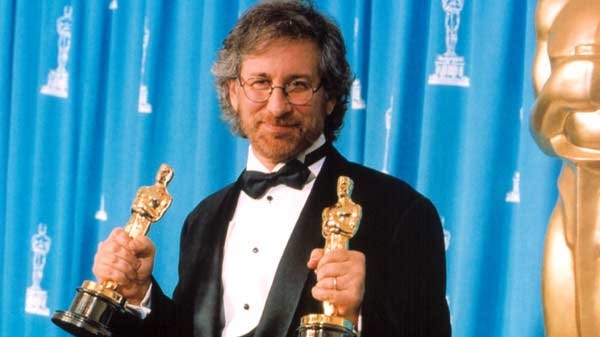Crying over Spiel-ed Milk
In the wake of the Oscars last month, director Steven Spielberg is attempting to push through a new rule to the Academy of Motion Picture Arts and Sciences, the body of industry-members who decide who wins each award. The rule would limit the ability of movies produced by streaming sites such as Netflix, Hulu, and Amazon to win awards. The rule would do so by preventing nominations unless a movie has a full theatrical run first. So far, companies such as Netflix have adopted a hybrid model by doing a limited theatrical run for movies they are trying to get nominated for major awards. Doing so disadvantages new modes of movie-making in an effort to defend against the established way movies are screened.
Spielberg is advocating for this rule in a closed Board of Governor meeting that shuts out many other people involved in the industry. Ava Duvernay, who directed the Netflix Oscar-nominated movie 13th, has been vocal in her criticism of Spielberg’s new proposal. Spielberg’s efforts are akin to former Republican Wisconsin Governor Scott Walker pushing through a bunch of legislation to limit his Democratic successor’s power. Both the Academy and the government are meant to be made up of many voices in order to strengthen the laws they impose. It would be wrong to let just a few people fearful of losing their established positions of power change the rules to bring down those around them.

Spielberg told ITV News last year, “Once you commit to a television format, you’re a TV movie. You certainly — if it’s a good show — deserve an Emmy, but not an Oscar.” He calls streaming platforms’ products “TV movies,” which seems to be a derogatory term meant to conjures up ideas of bad Hallmark made-for-TV movies (although he, too, has created many made-for-TV movies, such as Duel, Something Evil, and Savage). But even a “TV movie” is not the proper designation: I watch Netflix 90 percent of the time on my computer, as do many other Netflix subscribers. So are high quality movies like Roma and 13th suddenly to be called “computer movies”? People also watch movies on their phones and tablets — would this create a whole category of “phone movies”? TV movies are made in a specific format, allowing for commercial breaks, so it makes sense that they are called that; Netflix’s movies don’t follow this format, making Spielberg’s comment illogical. An Oscar is the only award movies could reasonably win. Also many movies end up on TV after their theater run, including many of Spielberg’s own movies. Should this imply that their Oscar be taken away once that is the case?
This is just a case of an established Hollywood man feeling threatened by modernity. It’s unclear why Spielberg is fighting streaming sites rather than signing on to direct for them. In the past he has embraced technological advancements. But maybe this time he won’t do so because it feels like the whole industry is being upended, and the rules, both formal and informal, that govern TV and film are fading away.
Further, the bulk of movies that are being produced for theatrical release are remakes of old classics such as Ghostbusters and Beauty and the Beast that seem like a safer bet for major film production institutions to produce and make a profit. Part of what makes Netflix great is that because it reaches so many people, it can create shows and movies that fill a very specific niche without worrying as much about trying to make everyone watch it. A film like Roma is unlikely to have been a blockbuster success in the same way as The Avengers or Black Panther, but because of the more egalitarian nature of Netflix it had a chance at wider viewership.
Blocking streaming-made movies from winning awards ignores the huge number of movies that are being watched by people who can’t or don’t want to spend the money on increasingly expensive movie theater tickets. I work an on-campus job and the cost of going to a theater to watch one movie is worth more than an hour of my work. A Netflix subscription is half that price and grants me access to hundreds of movies.
However, like Spielberg, I do also believe strongly in the importance of movie theaters. In San Francisco, there are two independent theaters within walking distance from where I grew up that show mostly foreign, indie, or classic films. The cinema experience is so special and is worth preserving. But barring new forms of cinema from receiving awards out of a sense of fear does not help that cause.
Finally, I question how important this issue even is. The Oscars this year were infamously a mess, dropping their host, scrambling to find a new one, and ultimately deciding just to forgo one entirely. Yet people liked the new format without a host, suggesting that some old traditions ought to go. The same logic should be applied to considering how movies are made. The current rule that to be nominated for an Oscar, a film must have at least a limited theatrical run, should be eliminated altogether, not strengthened. Watching movies produced by a streaming service is the future, whether Spielberg likes it or not.
Crying over Spieled Milk was originally published in The Yale Herald on Medium, where people are continuing the conversation by highlighting and responding to this story.
